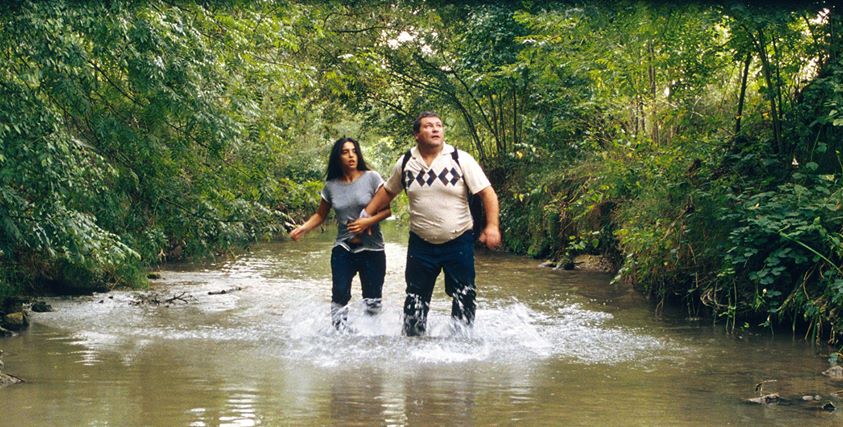
 Few films open with a scene detailing the color choice of a new tractor and end with four naked, mature men getting in bed together but “The King of Escape” is in a category of its own. The film, originally released in 2009 in France, is receiving its premiere NY theatrical run this week at Anthology following the stateside success of director Alain Guiraudie’s newest film “Stranger by the Lake.”
Few films open with a scene detailing the color choice of a new tractor and end with four naked, mature men getting in bed together but “The King of Escape” is in a category of its own. The film, originally released in 2009 in France, is receiving its premiere NY theatrical run this week at Anthology following the stateside success of director Alain Guiraudie’s newest film “Stranger by the Lake.”
“King of Escape” stars Ludovic Berthillot, in a humane performance totally lacking in self-consciousness, as Armand, a large forty-ish tractor salesman in rural France who spends his free time looking for older men at a cruising spot in the woods. One day in town, he sees a sixteen year old girl, Curly (Hafsia Herzi), being harassed by four boys. Armand saves Curly, not through physical bravery, but by buying the boys off with a trip to the ATM.
Inexplicably, Curly and Armand fall in love. This enrages Curly’s overbearing father (Luc Palun), and confuses people like Armand’s friend and sometimes lover Jean-Jacques (Bruno Valayer). “Don’t tell me you’re gay just for the fun of it – the freedom the parties?” Armand replies, “I had a choice, and even at forty, I still want one.” After several failed attempts, earning Armand a sex offender bracelet, he finally frees Curly from her father and the two go on the run. They stumble through the forest on foot in a charmingly inept escape, pursued by a growing posse led by Curly’s father and a wry policeman.
The film exists in a hypersexual state, free of any angst or guilt tied to the act. Apart from Armand and Curly’s unexpected union, the other men of the film seem to fall into bed together and give each other blowjobs as a matter of course. A Pan-like lust emanates from the natural surroundings, symbolized by a tuber called “doo-root” that the characters eat for a boost in virility.
The storyline of lovers on the run is reminiscent of many films such as “Pierrot le fou,” “Badlands,” or even “Moonrise Kingdom,” where lovers flee a restrictive civilization to pursue their romance in a natural Eden. But here, escape, or the more literal translation of the French title, evasion, is less a physical concept than the idea of evading expectations, which both Armand and the film itself do in spades. The film recognizes its cinematic forebears while refusing to play by their rules. Guiraudie, himself openly gay and from this region of France, refuses to label the characters or present them in oppositional terms, as happens all too often to both rural and gay characters. The characters are all equally powerless to resist the Arcadian ardor of “The King of Escape.” Guiraudie takes what sounds on paper like a sensationalist story and films it with warmth and whimsy, creating a singular vision of exploration and evasion.